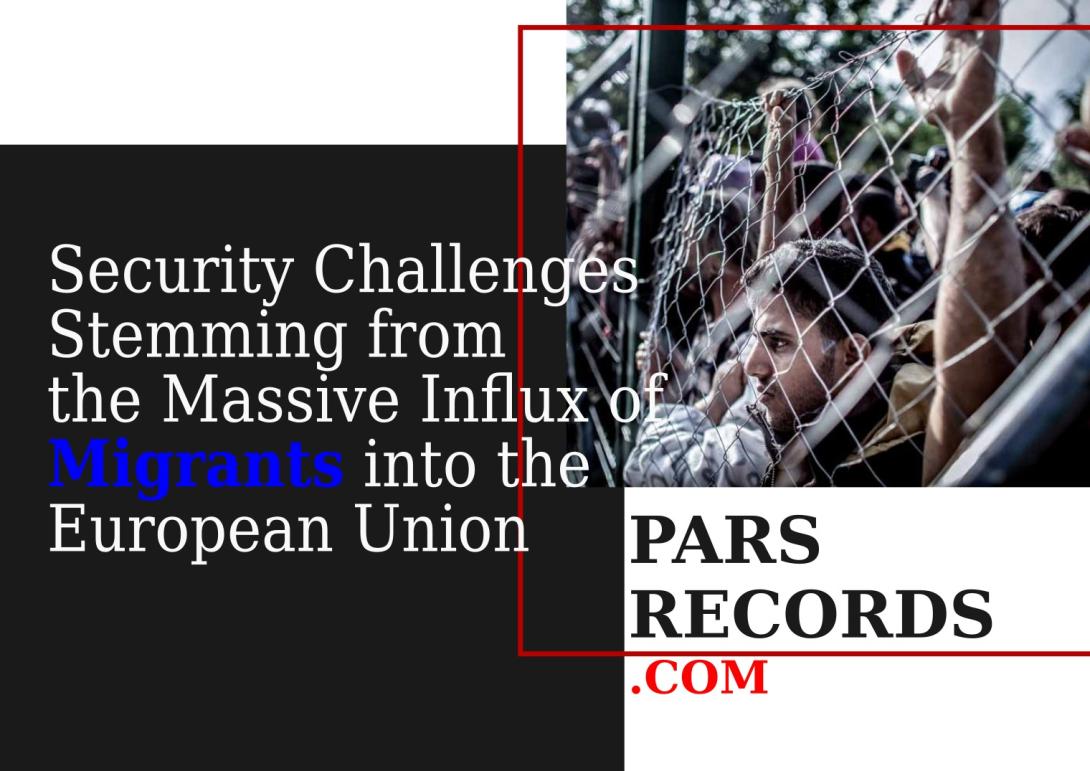The European Union (EU) has long been a destination for migrants seeking safety, stability, and better economic prospects. However, the significant increase in migration over the past decade—particularly during and after the 2015 refugee crisis—has introduced complex security challenges for EU member states. While migration itself is not inherently a security threat, the unprecedented volume and irregular nature of recent migration flows have strained administrative systems, fueled public anxiety, and occasionally been exploited by criminal and extremist networks. This essay examines the key security problems associated with large-scale migration to the EU, focusing on border control, terrorism, social cohesion, and policy coordination.
Border Security and Irregular Migration
One of the most pressing security issues concerns the management of the EU’s external borders. The Schengen Agreement, which allows for passport-free movement within much of Europe, relies heavily on the effective policing of external borders. However, the sudden influx of migrants—many of whom entered irregularly via the Mediterranean or the Balkans—has overwhelmed border management systems. Smuggling networks have capitalized on this situation, facilitating illegal crossings and endangering lives. The inability to properly identify and register all incoming migrants has created security blind spots, allowing potential criminals or individuals with extremist ties to move undetected.
Terrorism and Radicalization Concerns
Although the vast majority of migrants are peaceful individuals fleeing hardship, the possibility that extremist groups could infiltrate migration routes remains a persistent concern. Several terrorist attacks in Europe between 2015 and 2017 intensified fears that porous borders could be exploited by jihadist networks. Moreover, the social marginalization and economic exclusion of some immigrant communities have occasionally contributed to radicalization among second-generation youth. Consequently, EU member states have sought to balance humanitarian obligations with enhanced intelligence sharing, biometric data collection, and stronger vetting procedures.
Social and Political Tensions
Large-scale migration has also led to social security challenges. Rapid demographic changes in some European regions have strained local infrastructure, housing, and welfare systems. Inadequate integration policies have sometimes resulted in social segregation, feeding public resentment and political polarization. The rise of nationalist and anti-immigrant parties across Europe—such as the Alternative for Germany (AfD) and France’s National Rally—illustrates how migration-related security fears can destabilize political systems and erode trust in traditional institutions. These dynamics threaten not only domestic stability but also the EU’s cohesion and collective policymaking capacity.
Policy Coordination and Institutional Challenges
The EU’s fragmented migration governance has further complicated security management. The Dublin Regulation, which assigns responsibility for asylum processing to the first country of entry, has placed disproportionate burdens on frontline states such as Greece, Italy, and Spain. Disagreements among member states over relocation quotas and border enforcement have hindered the development of a unified security framework. While agencies like Frontex and Europol have expanded their mandates, coordination between national authorities remains uneven, leaving gaps that can be exploited by human traffickers or extremist groups.
Conclusion
The large-scale migration to the European Union presents a multifaceted security challenge that requires a balanced and coordinated response. Effective solutions must combine robust border control, comprehensive intelligence cooperation, and inclusive integration policies. Framing migration solely as a security threat risks undermining human rights and European values, yet ignoring the security dimensions of migration would be equally irresponsible. The EU’s long-term stability will depend on its ability to harmonize humanitarian commitments with pragmatic security management—ensuring both the protection of its citizens and the dignity of those seeking refuge within its borders.
PARSRECORDS.COM


Comments